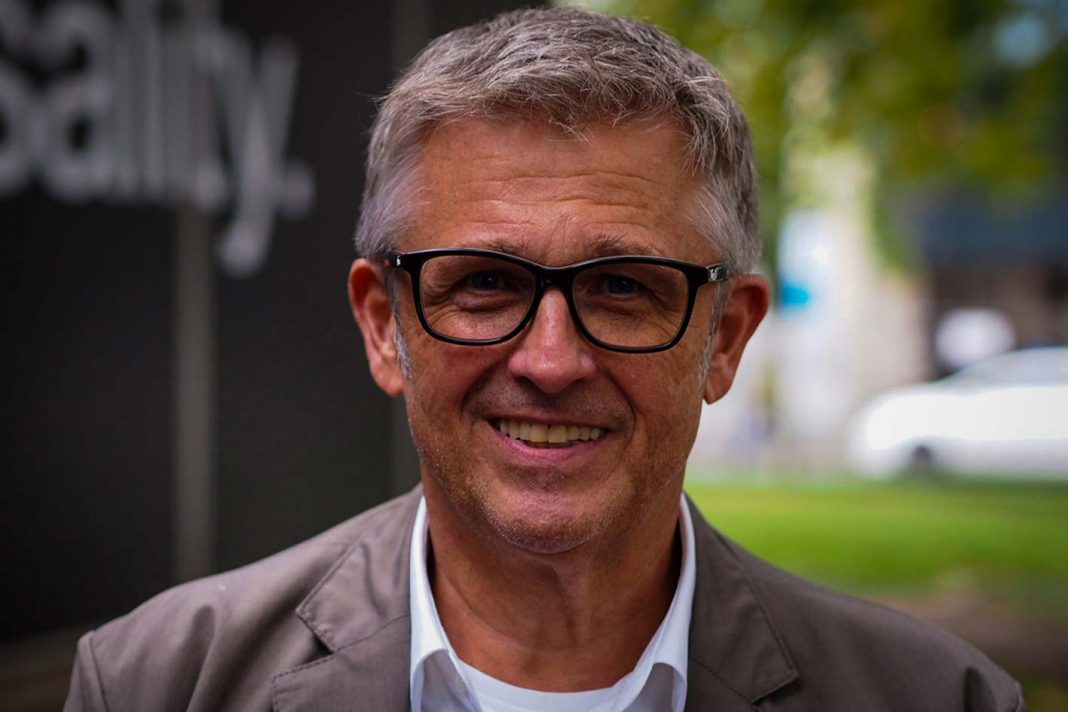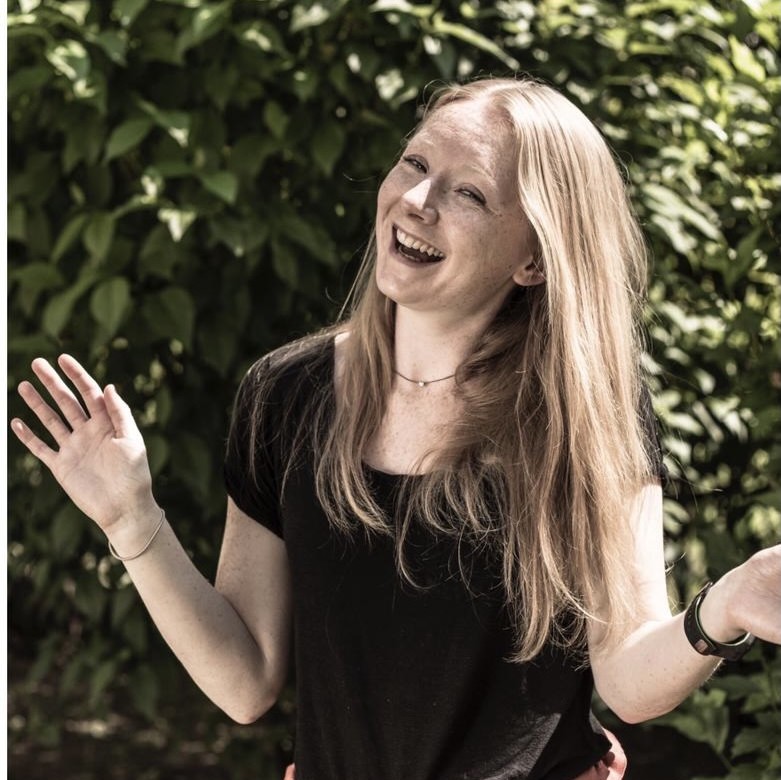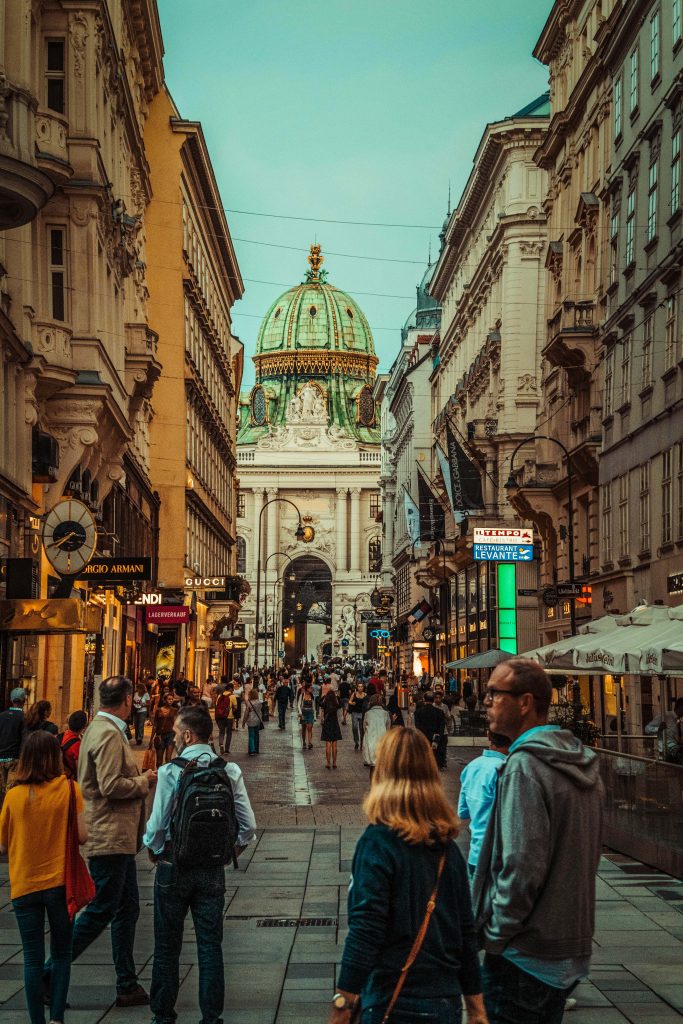With an interest in architecture, cities, mobility, and society, it seemed like a natural step for Eugen Antalovsky to specialise in urban development, and for the last three and a half decades he’s been advising cities on just that. We sat down with Eugen to discuss all things city planning, participation, and the successes and challenges he’s experienced working with the city of Vienna.
A political scientist, company founder, urban developer, city advisor: there are many names for a man who has done, well, nearly everything. For Eugen, at the heart of it all is Vienna – the place he has called home for more than 60 years. Realising early on his passion for cities, Eugen had a 20-year stint as Managing Director at europaforum wien. Since then, he has spent the last five years as one of the managing directors of Urban Innovation Vienna.
The “Fusion”
A “fusion”, as Eugen describes it, occurred in 2016/2017, when europaforum wien amalgamated with TINA Vienna to bring multiple sectors of expertise under one roof as Urban Innovation Vienna (UIV). Eugen and his team cover “more of the strategic questions of urban development, integration policy, asylum policy, etc. Their department is now called ‘Future Cities’. The Smart City and Energy Centre were previously part of the other organisation”, he tells us. So, there are essentially three departments. Eugen doesn’t hesitate to emphasise though that these topics overlap and that UIV is “the brackets to include and incorporate everything: the whole idea of finding smarter urban solutions”.
When asked what their main focus and primary task is, Eugen told us, primarily “Urban Innovation Vienna is a service facility for the city of Vienna and an urban think-tank”. He explains that they advise Vienna, as well as other cities, on the future of urban development and all manner of questions related to this. By doing research and investigating various issues, UIV can offer specific and tangible advice to the city and the different stakeholders, from politicians to administrators, and from architects to economists. This includes questions such as: What barriers are there? What measures should we implement and how can we best enforce these politically? Is there a way we can win over the public? How can we change people’s behaviour? “We are specialised all-rounders”, he tells us:
“We understand politics, we understand economy, we understand administration, we understand research, we understand society, and that helps us in cooperation, and in helping people along.”
Changing Vienna for the Better
Eugen explains various instances of how UIV has helped (and continues to help) Vienna’s urban development and progress towards being a more liveable, future-proof, and sustainable city. Working on the City of Vienna’s Management Plan for the World Heritage Property in the city has meant collaborating with an extensive number of stakeholders. Our expert says, “we won’t be able to satisfy everyone, but we are trying to keep as many people happy as possible”. A common and relatable issue for many of our CityChangers.
UIV was also involved in the organisation, coordination, discussion processes, and production of the publication for the Smart City Strategy for the City of Vienna.
Another example was their work this year on the Wiener Diversitätsmonitor – Vienna’s Diversity Monitor. Eugen explains that this involved “investigating more than 50 departments and companies in Vienna to look at how their organisation reflected the diversity of society”. This included checking out the workforce, the expertise people have, and how customer contact with different communities and classes of migrant populations is organised.
He continues to explain that they have worked extensively on this over the years, advising on participation, diversity, integration, and social inclusion. To this he adds: “We think that participation must always work well and be interconnected with the representative institutions like parliament, city councils, community councils, regional representation – this must all be reconciled.” An essential element of urban development for making cities work now and for future generations.
Defining the Challenges
We probably don’t need to tell you that being a CityChanger is hardly all plain sailing. Eugen spoke to us about some of the current and future challenges he has faced, or that may need to be faced in years to come.
“These are issues in which there lies enormous potential for conflict.”
- Climate Change
“I don’t want to state the obvious,” Eugen obverses, “but climate change is the biggest challenge”. This is a phenomenon which has proven that we are not just moving within the confines of our city; “We are moving in the regional arena, within a European arena, and we are influenced by global developments”, he states.
In the face of such big challenges, Eugen advises cities to look at where they can act, evaluate where you will need partners at a national level, where you will need private partners, and where you need help at a European or international level.
- Accelerated Economy
Eugen describes the challenge of there being “accelerated changes of economic cycles”. He says this is something we’ve been able to see for many years, as is reflected in political developments. People are “losing clarity and can no longer find common points of reference”, he adds. People cannot keep up with this speed of change or support it. As a result, Eugen highlights, individuals are more likely to support radical political ideas.
- Work
The different ways of working have been brought to the forefront as a result of the COVID-19 pandemic. “It all sounds great, working from home and such things, but if you look at it more closely, huge issues with precarious working conditions and unstable work contracts can arise as a result”, Eugen explains. The future of work processes is a challenge that he describes as an “extreme challenge”.
- Financing
Eugen warns that because we now have a “generation of inheritors”, particularly in European cities, it could lead to “strong frictions between the sharing of economic benefits and the long-term financing of projects”. He stresses the fact that both in the private rental and in the ownership housing sectors, even those who are earning decent money are now struggling to get on the housing ladder.
- Food
This is “an increasingly important topic”, Eugen says, which raises the issue of food, consumption, production, and the distances involved in doing all this. A challenge with no simple answers.
- Integration
“Diversity is an extremely helpful and fruitful element in our society. We can bring together many ideas, perspectives, development opportunities in one place. It enriches the city and every urban society.”

Possibly the most prominent challenge of them all, in Eugen’s opinion: “migration will always be an issue, and one to which we still have no good answer”. He would really like to see a bit more focus on this because, as he rightly points out, there are consequences if we don’t. He offers the example of people who are perhaps third or fourth generation immigrants, who speak the working language perfectly, perhaps even the local dialect, and yet they will still be an outsider or treated differently “because just looking different seems to be enough of a reason”.
How to Jump These Hurdles – Advice from Eugen
Clearly, there is no way of solving every single challenge and coming out unscathed. However, Eugen does offer some ideas of what can be done to try and mitigate the fallout from these issues.
Future-Proofing Cities
Eugen starts by saying the best he and the team at UIV can do, and what they are doing, is encouraging cities to tackle these problems head-on. To do so offensively, with a bit of oomph and momentum. He specifies, cities must acknowledge that “there are things that are difficult, and we have to face them”.
Even if the public is not yet so aware of some of these challenges, “these are things that can never be dealt with too early” Eugen says. He continues: “Put it this way, where we give advice, we advise people to tackle such issues and questions as quickly as possible.”
Prepare Yourself
Eugen, quoting his wife, tells us: “Change is the only certainty in this world.” This is something that brings about psychological difficulties for individuals as well as the practical problems of a world that never stands still for longer than a moment. We, as people and as cities, need to have increasingly strong nerves to deal with the constant shifts. This is something we can talk to people about and build into urban development plans in order to become resilient to an uncertain and ever-changing future.
Don’t Take it Lightly, Participate Properly
Participation and participatory processes have been increasingly spoken about recently. It is a way of including as many people as possible, from all different walks of life and with a diverse range of backgrounds in various processes, including that of urban development.
When we asked Eugen how Vienna and other cities can improve participation, he served up a few smashing pieces of advice.
- Participatory processes must be done openly and clearly: “You have to transparently define the rules of the game – how far are we going to take a common, participatory path and when do those with political responsibility need to make decisions?”
“If everything remains blurred, then everyone will be unhappy with the solution.” - “Prepare for conflict and be able to deal with it… participation and democracy always mean finding compromises”, Eugen advises. The whole point of participation is to allow you to fight your corner – whether in politics, business, economics or for citizens – but it also means there will always be a compromise.
- Eugen expresses his dislike of dragged-out participation projects, saying, “it is important for participation projects to be compact in terms of time”. For instance, with project-related participation processes. This is something he praises Vienna for doing well over the years: strategy projects like Vienna’s Urban Development Plan.
UIV works a lot on participation and, while Vienna is a role model in one sense, Eugen has also noticed a few areas for improvement. He states that currently, the “ability to positively argue” is missing and that it often “results relatively quickly in someone being insulted or retreating, or in polarisation”.
Learning From Other Cities
This is one thing that every city can do: be a meercat. Stand tall and keep your eyes open for other cities that have had and solved similar issues to the ones you are facing.
Eugen says that the more business-driven approach of London and other Anglo-American cities is perhaps something that Vienna, can learn from. He notes, “you notice the difference in the economic dynamism, the willingness to take a risk, the naturalness of moving in international frameworks” when you compare Vienna to these cities.
France, specifically Paris, is also a suggested point of inspiration from our city expert in terms of implementation. Here, things happen and are enforced very quickly. Of course, stresses Eugen, “this is linked to the cultural perception too”.
Equally, there are things we can be learning from Vienna, too. Although efficiency is great, Eugen ventures that sometimes “a certain amount of deliberation and slowness also has an advantage”. We can see where he’s coming from. Endless pressure to make every process absolutely optimal does nothing but create more stress. According to Eugen, that’s something felt by “the economy, the people, and the political processes. We need to consider how we can re-organise or re-structure that in the future”. When working with or learning from other cities, we need to remember that every culture is different. “This is something you’ve always got to consider in urban planning – in which circles are you moving in and with which partners or support networks are you working with?” This will vary, and strategies, ideas, and processes must be adapted accordingly.
The Future of Vienna
Eugen may be retiring but he’s certainly not giving up his work for change and for bettering cities. Watch out Vienna, he still has hopes and aspirations for you yet!
He praises the approach Vienna has at the moment and believes this is something to be continued. If it’s so good, care to share what this is?, you may be asking. “It’s an approach that is very much oriented towards social balance and social integration”, Eugen explains.
Other tasks that remain on the post-it note of things to rethink: how we do things in terms of growth and the urban fringes; how we organise local amenities; how we can optimise public transport to the suburbs, etc.
Finally, Eugen aspires to see a little more “willingness and joy in experimentation”, he says hopefully. Perhaps a move away from weighing up a decision for what feels like an eternity – “I’d like to see more vitality”, he adds.
Cast Your Mind Back…
As Eugen is coming to the end of an era, we asked him what he is most proud of. Professionally, he spoke of being proud of the teams at UIV that are now flourishing. He is proud of them being “perceived as competent, of our reliability and speed in getting things done, and our ability to work together with different stakeholders”.
Eugen also speaks of his teams with pride when looking back at all they have achieved. He describes how they have managed to do a lot that was once just something abstract, imagined. Now, it’s a reality.
Personally, Eugen was proud of being “a restless spirit”, always trying something new, being curious, pushing for more. “In the grand scheme of things, I am proud to have proved I have a backbone; I always try it and stand by it”.
Advice for CityChangers
Eugen doesn’t hesitate on this one. He says there are essentially three characteristics CityChangers should have when tackling urban development: “openness, curiosity, and patience”.
Some other take-aways we think might help:
- Accept the challenges and issues and tackle them head on. Don’t waste time ignoring them; they’ll still be there when you’ve finished eating that ice cream or reading that other CityChangers article 😉
- Prepare yourself and your city for change; there’s no avoiding it.
- Diversity, social inclusion, and participation are critical to a thriving city – make sure participation processes are streamlined and clearly defined. If you want to learn more about participation and urban development, check out our article about exactly that.
- Learn from other urban environments and allow others to learn from you. Always be sure to adapt solutions to the local context though. Just because it worked there, doesn’t mean you can copy and paste it directly into your city unchanged.
- Think enough but not too much and be open to ideas – there’s no point delaying something and considering it multiple times over because by then it could be too late.
And remember, patience really is a virtue: change takes time.



